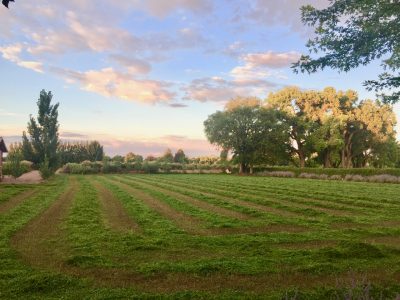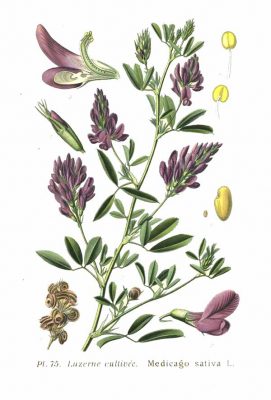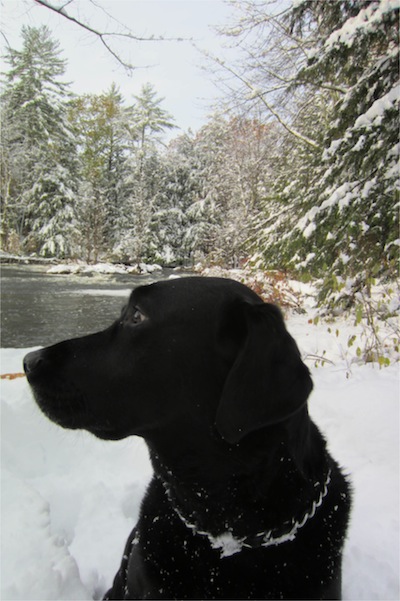 Today I awoke to find my front yard different. This view, which greets me every morning with my coffee, prayer, study and silence like an airplane stewardess showing me to my seat for the day’s flight, had a different look today. I was aware, these last few weeks, that the alfalfa of this farm and, in particular, the field which comprises the green seashore off my front porch, would be cut and then re-grown when the purple flowers begin to proliferate, turning the sea of green into a wash of green and violet. And as I saw the violet hues increase these past few days I was deeply aware, in the back of my mind, that the cutting would be soon. I was vaguely aware of the anxiety of change standing outside the front door of my psyche like a messenger. Bad news in that envelope?
Today I awoke to find my front yard different. This view, which greets me every morning with my coffee, prayer, study and silence like an airplane stewardess showing me to my seat for the day’s flight, had a different look today. I was aware, these last few weeks, that the alfalfa of this farm and, in particular, the field which comprises the green seashore off my front porch, would be cut and then re-grown when the purple flowers begin to proliferate, turning the sea of green into a wash of green and violet. And as I saw the violet hues increase these past few days I was deeply aware, in the back of my mind, that the cutting would be soon. I was vaguely aware of the anxiety of change standing outside the front door of my psyche like a messenger. Bad news in that envelope?
It was last night. The alfalfa was cut last night.
So today I awoke to green stripes and so the purple of the Russian Sage reappeared to take center-stage and a small bow to the applause of the cosmos. Having lost the ability to smell, I was deeply aware of the loss as I imagined the smell of a cut field to be marvelous. And though I loved the sea of green, something about a striped field was wonderful as well. Playful. Different. Like the stripes of a circus tent, but planetary.
 The alfalfa will feed the area horses and some other live stock – there are sheep, lamas and steer in the neighborhood to which Kai-the-dog offers a gentle and rather regal nod as we go by them on our walks through and around neighbor’s fields. And the food we eat will be good food, in part, because of this good alfalfa.
The alfalfa will feed the area horses and some other live stock – there are sheep, lamas and steer in the neighborhood to which Kai-the-dog offers a gentle and rather regal nod as we go by them on our walks through and around neighbor’s fields. And the food we eat will be good food, in part, because of this good alfalfa.
We humans find change difficult. At least I do. I like things to stay the same and yet change is the only constant. Mindfulness practice welcomes change to the table like a Maharaja welcoming a guest to dine with his harem and his court. The court of the mind is full of power-mongers vying for position, attention, possession. The harem waits the way our insecurities wait – aware that if they are used, it will be an inauthentic experience for everyone.
But if we can train our minds to see and welcome change the way an artist might – feeling deeply the pain of it but wondering if its arrival might usher forth some new thing, new color, new inspiration, new perspective – well then change can be seen less as an invader or threat and more as a muse, winking mischievously and asking questions about what wonderful things might be possible – possible ONLY because of the change.



Alfalfa also fixes nitrogen in the soil. So it feeds herds and also the ground itself. I lament that you cannot smell it drying in the sun. It is the sweetest summer smell on earth.